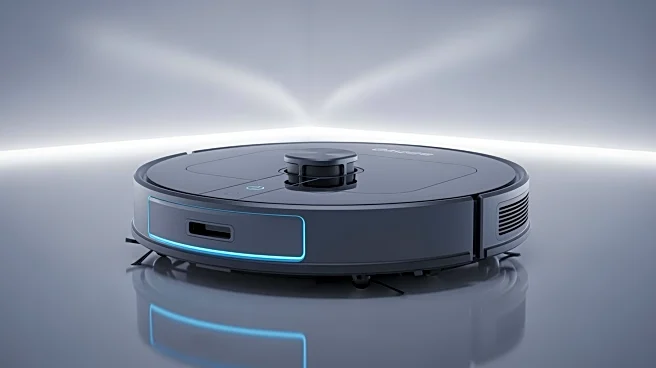What's Happening?
The Dreame L10s Pro Ultra robot vacuum and mop is currently available at a significant discount on Amazon, priced at $370, which is 59% off its retail price of $900. This limited-time offer marks the lowest
price this model has ever reached. The Dreame L10s Pro Ultra is equipped with advanced features, including 7,000 Pa of suction power, a self-cleaning base that can hold up to 75 days' worth of debris, and smart recognition technology to avoid obstacles. It can clean up to 2,206 square feet per charge and transitions smoothly from hard floors to carpets. The vacuum also supports customizable cleaning routines via an app, although it only supports 2.4G Wi-Fi.
Why It's Important?
Robot vacuums, especially those with mopping and self-emptying capabilities, are typically expensive, making this discount particularly noteworthy for consumers looking to automate household chores. The Dreame L10s Pro Ultra's price reduction to $370 makes it more accessible to a broader audience, potentially increasing its adoption among homeowners seeking efficient cleaning solutions. With tariffs impacting electronics prices, such deals are rare, offering consumers a chance to purchase high-quality technology at a reduced cost. This could influence market dynamics by encouraging competitors to offer similar discounts to attract customers.
What's Next?
As this is a limited-time offer, consumers interested in purchasing the Dreame L10s Pro Ultra at this discounted price should act quickly. The deal's expiration could lead to a return to the original price, making it less affordable. Additionally, other retailers may respond by offering competitive discounts on similar products to capture market interest. The ongoing impact of tariffs on electronics could further affect pricing strategies in the future, potentially leading to more frequent promotional offers as companies seek to maintain sales volumes.
Beyond the Headlines
The increasing affordability of advanced robot vacuums like the Dreame L10s Pro Ultra may contribute to a shift in consumer behavior towards more automated home cleaning solutions. This trend could have broader implications for the home appliance industry, driving innovation and competition among manufacturers. As more households adopt such technology, there may be a growing demand for smart home integration, enhancing the functionality and convenience of these devices.









